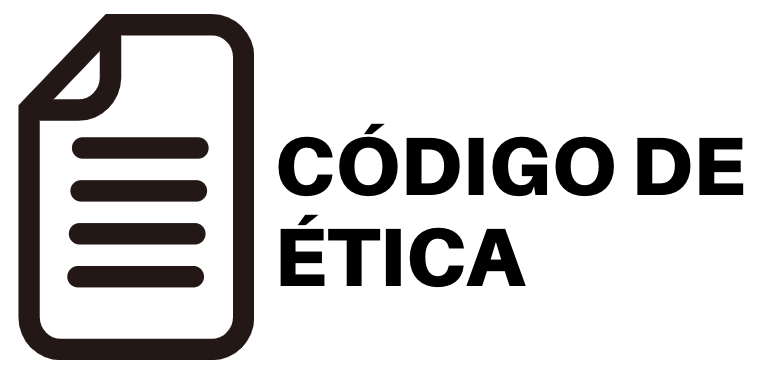Guide of Teaching Activities for the Cognitive Development of Initial Education Students. Case of the 15 de Octubre Educational Unit in Jipijapa, Manabí.
DOI:
https://doi.org/10.33936/psidial.v2i2.5776Keywords:
cognitive development, development strategy, pedagogy, initial levelAbstract
The cognitive development of children at an early age is achieved through scientifically based techniques and activities that are applied systematically, for this reason the objective of this research is to design a guide of teaching activities for the cognitive development of high school students. the initial levels of the Educational Unit October 15. The work was developed with a qualitative-quantitative methodology, with a sample of 4 teachers from the educational unit under study, who work as teachers at the initial level, to whom a survey was applied that allowed several relevant aspects to be determined. , among which are having been trained on this topic, willingness to rely on an activity guide, and the perception of the degree of difficulty that children present in the different cognitive processes. Additionally, participant observation was applied to assess aspects related to teachers' knowledge to develop the educational process that enhances cognitive processes. The collection and analysis of the data allows us to conclude that the design and use of an activity guide for the cognitive development of children at the initial level of the 15 de Octubre Educational Unit is beneficial and positive for not only cognitive development, but comprehensive of minors. The guide to the results of this work has been evaluated by experts regarding its feasibility.
Downloads
References
Albornoz Zamora, E. J., & del Carmen Guzmán, M. (2016). Desarrollo cognitivo mediante estimulación en niños de 3 años: centro desarrollo infantil nuevos horizontes. Quito, Ecuador. Revista Universidad y sociedad, 8(4), 186-192 http://scielo.sld.cu/scielo.php?pid=S221836202016000400025&script=sci_arttext&tlng=pt
Agudelo Gómez, L., Pulgarín Posada, L. A., & Tabares Gil, C. (2017). La estimulación sensorial en el desarrollo cognitivo de la primera infancia. Fuentes, 19 (1), 73-83. https://idus.us.es/handle/11441/72890
Astudillo, J. A. M. DESARROLLO DEL PENSAMIENTO CRÍTICO DEL NIÑO. A TRAVÉS DE LA LITERATURA INFANTIL EN LA PRIMERA INFANCIA. Revista Arjé. Edición, 15(28), 202-224. http://arje.bc.uc.edu.ve/arje28/art11.pdf
Aguilar Feijoo, R. M. (2004). La guía didáctica, un material educativo para promover el aprendizaje autónomo. Evaluación y mejoramiento de su calidad en la modalidad abierta ya distancia de la UTPL. http://e-spacio.uned.es/fez/eserv/bibliuned:20639/guia_didactica.pdf
Castilla, C. A. A. (2006). Enfoques teóricos sobre la percepción que tienen las personas. Horizontes pedagógicos, 8(1), 1. https://dialnet.unirioja.es/servlet/articulo?codigo=4907017
Castro Pérez, M., & Morales Ramírez, M. E. (2015). Los ambientes de aula que promueven el aprendizaje, desde la perspectiva de los niños y niñas escolares. Revista electrónica educare, 19(3), 132-163. http://www.scielo.org.bo/scielo.php?pid=S2616-79642021000300826&script=sci_arttext
Cervera, J. (2003). Adquisición y desarrollo del lenguaje en Preescolar y Ciclo Inicial. Biblioteca Virtual Miguel de Cervantes, España. http://www.ardilladigital.com/DOCUMENTOS/EDUCACION%20ESPECIAL/LOGOPEDIA/DESARROLLO%20LENGUAJE/Adquisicion%20y%20desarrollo%20del%20L%20en%20Preescolar%20y%20ciclo%20inicial%20-%20Juan%20Cervera%20-%20art.pdf
Fernández, B. (2011). Estimulación cognitiva en niños de segundo ciclo de infantil. [Tesis de grado]. Repositorio abierto de la Universidad de Cantabria. https://repositorio.unican.es/xmlui/handle/10902/1489
Fuenmayor, G., & Villasmil, Y. (2008). La percepción, la atención y la memoria como procesos cognitivos utilizados para la comprensión textual. Revista de artes y humanidades UNICA, 9(22), 187-202. https://www.redalyc.org/pdf/1701/170118859011.pdf
Flórez Ochoa, R. (2013). Estrategias de enseñanza y pedagogía. Actualidades pedagógicas, 1(61), 15-26. https://ciencia.lasalle.edu.co/ap/vol1/iss61/1/
Ibáñez, N. (2000). El lenguaje en el niño: una nueva mirada. Estudios pedagógicos (Valdivia), (26), 51-67. https://www.scielo.cl/scielo.php?pid=S0718-07052000000100004&script=sci_arttext&tlng=en
Pitillas Salvá, C., & Roldán Franco, M. A. (2022). Psicología Evolutiva: Infancia y Adolescencia. https://repositorio.comillas.edu/xmlui/bitstream/handle/11531/71772/Gu%C3%ADa%20Docente.pdf?sequence=1
Santi-León, F. (2019). Educación: La importancia del desarrollo infantil y la educación inicial en un país en el cual no son obligatorios. Revista Ciencia Unemi, 12(30), 143-159. https://www.redalyc.org/journal/5826/582661249013/582661249013.pdf
Zambrano, M. R. L., & Meza, A. K. T. (2022). Guía de actividades lúdicas para el desarrollo socioafectivo en estudiantes de inicial II: Una propuesta educativa. Revista EDUCARE-UPEL-IPB-Segunda Nueva Etapa 2.0, 26(Extraordinario), 531-550. https://revistas.investigacion-upelipb.com/index.php/educare/article/view/1644
De Piaget, T. D. D. C. (2007). Desarrollo Cognitivo: Las Teorías de Piaget y de Vygotsky. Recuperado de http://www. Paidopsiquiatria. Cat/archivos/teorias_desarrollo_cognitivo_07-09_m1. Pdf, 29.
http://www.paidopsiquiatria.cat/FILES/TEORIAS_DESARROLLO_COGNITIVO_0.PDF
Tineo Villegas, R. I. (2019). Desarrollo Cognitivo del Niño.http://repositorio.untumbes.edu.pe/handle/20.500.12874/990
Agudelo Gómez, L., Pulgarín Posada, L. A., & Tabares Gil, C. (2017). La estimulación sensorial en el desarrollo cognitivo de la primera infancia. Fuentes, 19 (1), 73-83.
Downloads
Published
Issue
Section
License
Copyright (c) 2023 Mercedes Magdalena Calle Galarza, Ana Isabel Ruiz Cedeño

This work is licensed under a Creative Commons Attribution-NonCommercial-ShareAlike 4.0 International License.





















